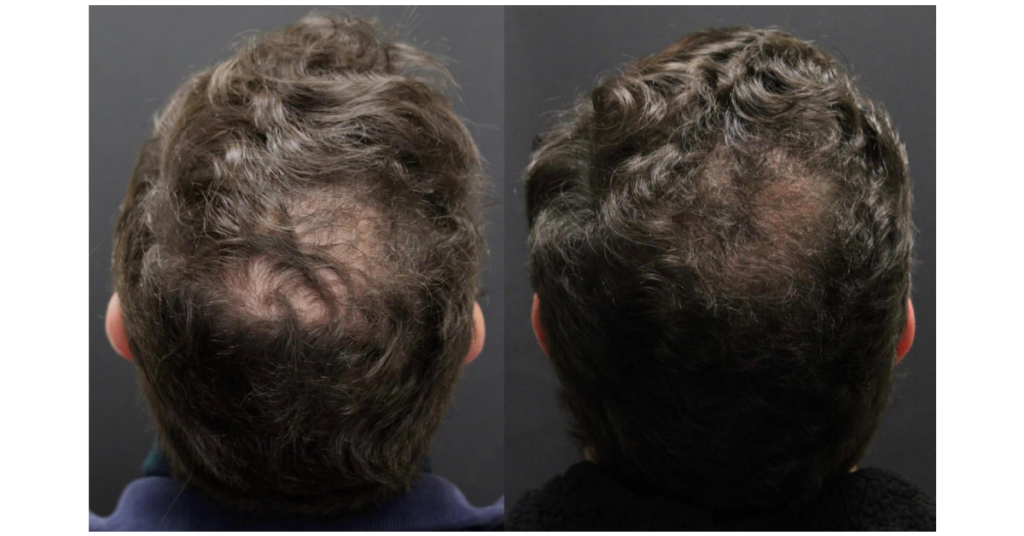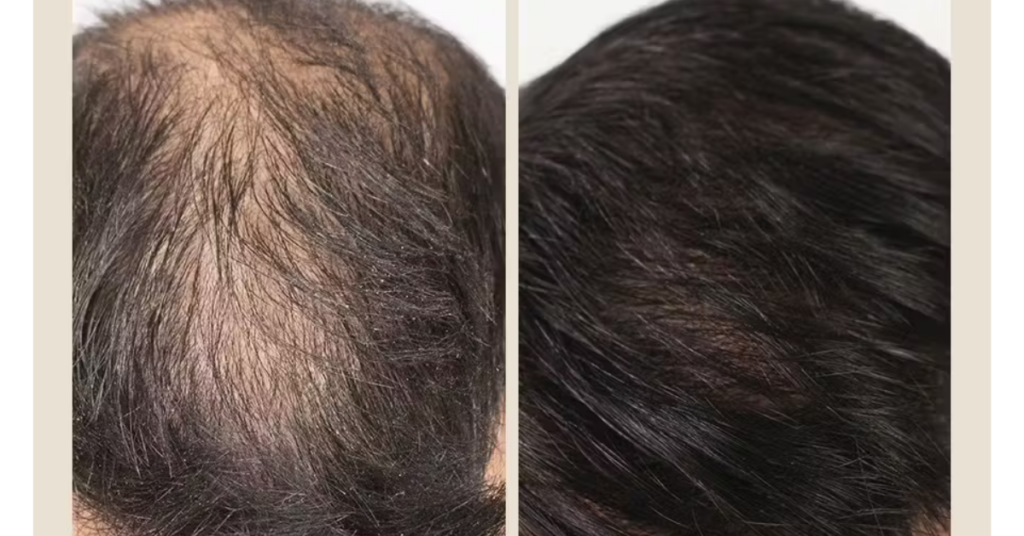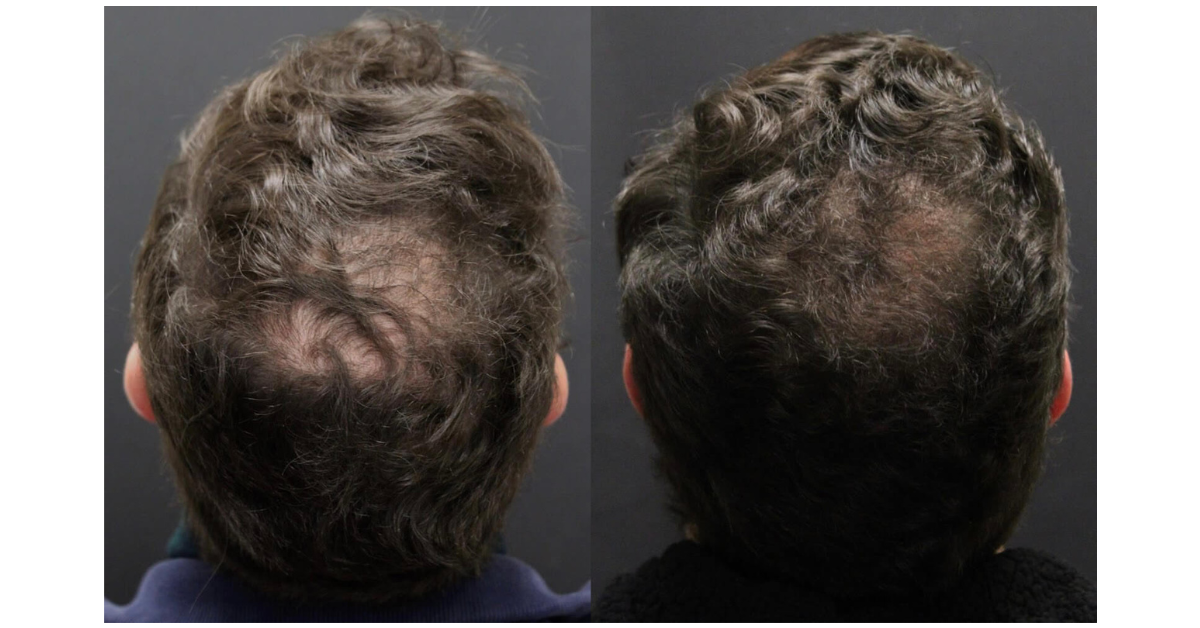The Hormonal Hair Loss: Embracing Change for Men

In the grand symphony of life, one of the most noticeable melodies is the passage of time. As we journey through the years, our bodies undergo numerous changes, some subtle and some striking. For men, a particularly prominent change often comes in the form of receding hairlines and hair loss. But fear not, for this natural evolution offers a unique opportunity for self-expression and reinvention: the choice between shaving it off or letting it grow.
The correlation between hormonal shifts and hair loss in men is a well-documented phenomenon. As testosterone levels decline with age, the hair follicles become more sensitive to dihydrotestosterone (DHT), a hormone derived from testosterone. This sensitivity can lead to the gradual shrinking of hair follicles, resulting in thinner and shorter hair strands, and in some cases, complete baldness.
The initial realization of hair loss can be a jarring experience.
It’s as if a piece of their identity is slipping away with each strand of hair that falls. However, it’s essential to recognize that baldness does not diminish one’s masculinity or attractiveness. In fact, it presents an opportunity to embrace change and redefine one’s sense of self.
One option for dealing with hair loss is to take matters into your own hands, quite literally, by opting for the clean-shaven look. Shaving off remaining hair can be a liberating experience, symbolizing a bold embrace of one’s natural state. The smooth, bald head exudes confidence and strength, making a powerful statement about self-assurance and acceptance.
On the other hand, some men choose to let nature take its course and allow their hair to grow, albeit in more limited quantities. While this approach may not reverse the effects of hair loss, it can still be a stylish and fashionable choice. Embracing shorter hairstyles can add depth and character to one’s appearance, showcasing a unique sense of style.
Ultimately, the decision to shave it off
Or let it grow is a deeply personal one, influenced by individual preferences, lifestyle, and confidence levels. What’s most important is to embrace the changes that come with age gracefully and with confidence. Whether bald or adorned with a stylish mane, a man’s worth is not defined by the presence or absence of hair but by the content of his character and the strength of his spirit.
In a world obsessed with youth and perfection, embracing baldness or hair loss can be a revolutionary act of self-love and acceptance. It’s a reminder that true beauty lies not in conforming to societal norms but in embracing our imperfections. So, whether you choose to shave it off or let it grow, wear your hair with pride and confidence. It’s a testament to the journey you’ve traveled and the wisdom you’ve gained along the way.
Serenity Health Care Center’s Revolutionary Hair Growth Treatment
In the ever-evolving landscape of healthcare, innovation continues to shape the way we approach wellness and self-care. We offer a groundbreaking treatment is revolutionizing the way we address hair loss and thinning. Introducing Alma’s TED device, a state-of-the-art technology harnessing the power of low-level laser therapy (LLLT) to stimulate hair growth and enhance the density and quality of hair.
For many individuals, hair loss can be a source of frustration and self-consciousness, impacting not only physical appearance but also mental and emotional well-being. Traditional treatments often come with limitations and side effects, leaving patients searching for safer and more effective alternatives. That’s where Alma’s TED device shines, offering a non-invasive and scientifically proven solution to hair restoration.
LLLT, the cornerstone of Alma’s TED technology, works by delivering gentle yet powerful laser energy to the scalp, where it penetrates the skin and stimulates cellular activity. This stimulation encourages blood flow to the hair follicles, revitalizing dormant follicles and promoting the growth of thicker, healthier hair. Unlike invasive procedures or harsh chemicals, LLLT is painless, free of side effects, and suitable for individuals of all skin types.
What sets Alma’s TED device apart
Is its advanced design and precision engineering, delivering targeted therapy with unparalleled efficacy. The device’s ergonomic design ensures optimal coverage of the scalp, maximizing the therapeutic benefits of each session. With customizable treatment plans tailored to individual needs, patients can experience visible results in as little as a few weeks, restoring confidence and reclaiming their sense of self.
At Serenity Health Care Center, our commitment to holistic wellness extends beyond mere treatment to encompass comprehensive care and support. Our team of experienced professionals takes a personalized approach to every patient, guiding them through each step of their hair restoration journey with compassion and expertise. From initial consultation to ongoing maintenance, we prioritize patient comfort and satisfaction, ensuring a seamless experience from start to finish.

The pictures speak for themselves, with countless individuals reclaiming their confidence and vitality thanks to Alma’s TED device and the dedicated team at Serenity Health Care Center. Whether you’re struggling with hereditary hair loss, thinning due to aging, or other underlying conditions, there’s hope for a brighter, more vibrant future.
Join us at Serenity Health Care Center and experience the transformative power of Alma’s TED device firsthand. Say goodbye to hair loss and hello to a new era of self-assurance and serenity. Because when you look and feel your best, anything is possible. Schedule your appointment today!
